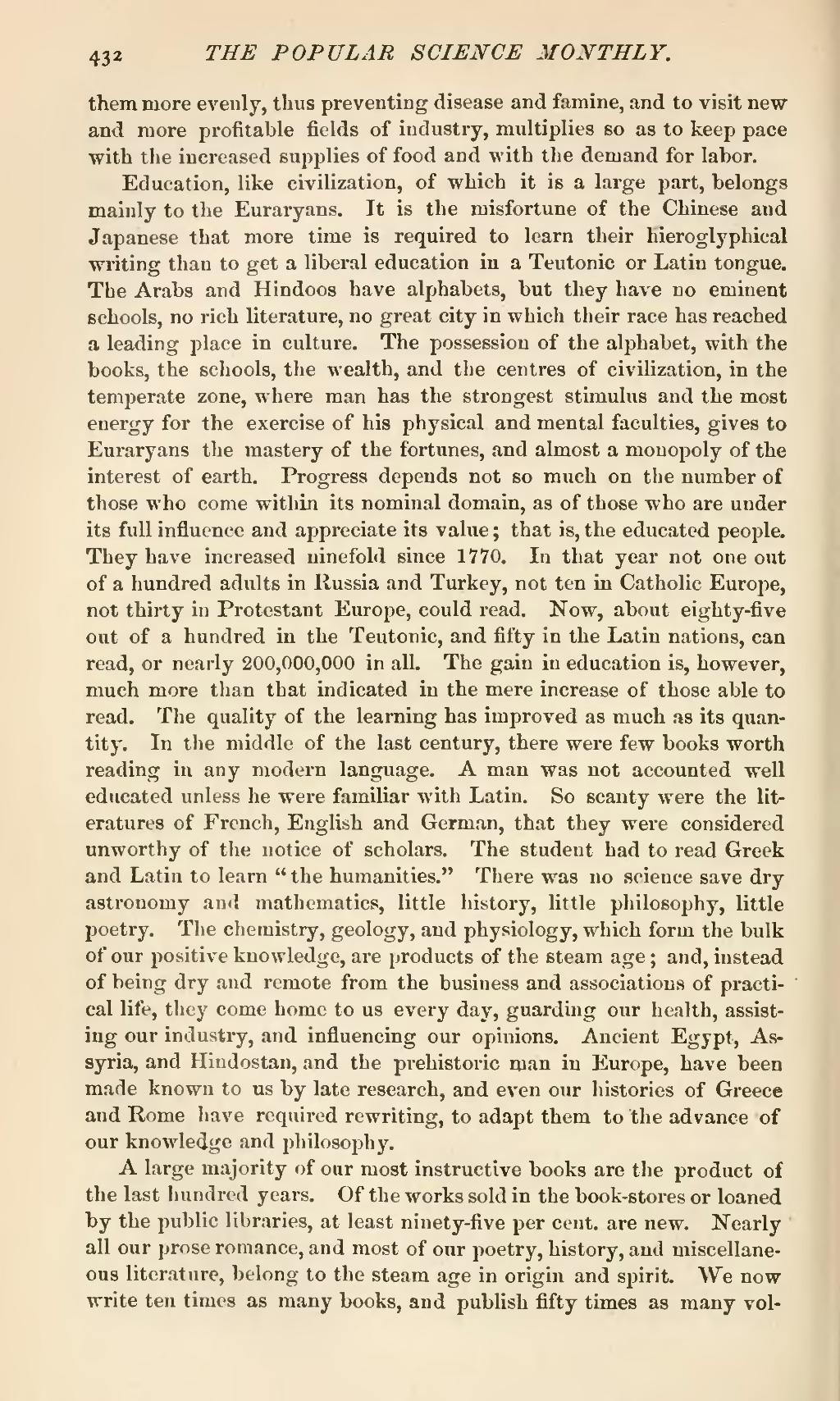them more evenly, thus preventing disease and famine, and to visit new and more profitable fields of industry, multiplies so as to keep pace with the increased supplies of food and with the demand for labor.
Education, like civilization, of which it is a large part, belongs mainly to the Euraryans. It is the misfortune of the Chinese and Japanese that more time is required to learn their hieroglyphical writing than to get a liberal education in a Teutonic or Latin tongue. The Arabs and Hindoos have alphabets, but they have no eminent schools, no rich literature, no great city in which their race has reached a leading place in culture. The possession of the alphabet, with the books, the schools, the wealth, and the centres of civilization, in the temperate zone, where man has the strongest stimulus and the most energy for the exercise of his physical and mental faculties, gives to Euraryans the mastery of the fortunes, and almost a monopoly of the interest of earth. Progress depends not so much on the number of those who come within its nominal domain, as of those who are under its full influence and appreciate its value; that is, the educated people. They have increased ninefold since 1770. In that year not one out of a hundred adults in Russia and Turkey, not ten in Catholic Europe, not thirty in Protestant Europe, could read. Now, about eighty-five out of a hundred in the Teutonic, and fifty in the Latin nations, can read, or nearly 200,000,000 in all. The gain in education is, however, much more than that indicated in the mere increase of those able to read. The quality of the learning has improved as much as its quantity. In the middle of the last century, there were few books worth reading in any modern language. A man was not accounted well educated unless he were familiar with Latin. So scanty were the literatures of French, English and German, that they were considered unworthy of the notice of scholars. The student had to read Greek and Latin to learn "the humanities." There was no science save dry astronomy and mathematics, little history, little philosophy, little poetry. The chemistry, geology, and physiology, which form the bulk of our positive knowledge, are products of the steam age; and, instead of being dry and remote from the business and associations of practical life, they come home to us every day, guarding our health, assisting our industry, and influencing our opinions. Ancient Egypt, Assyria, and Hindostan, and the prehistoric man in Europe, have been made known to us by late research, and even our histories of Greece and Rome have required rewriting, to adapt them to the advance of our knowledge and philosophy.
A large majority of our most instructive books are the product of the last hundred years. Of the works sold in the book-stores or loaned by the public libraries, at least ninety-five per cent, are new. Nearly all our prose romance, and most of our poetry, history, and miscellaneous literature, belong to the steam age in origin and spirit. We now write ten times as many books, and publish fifty times as many vol-
